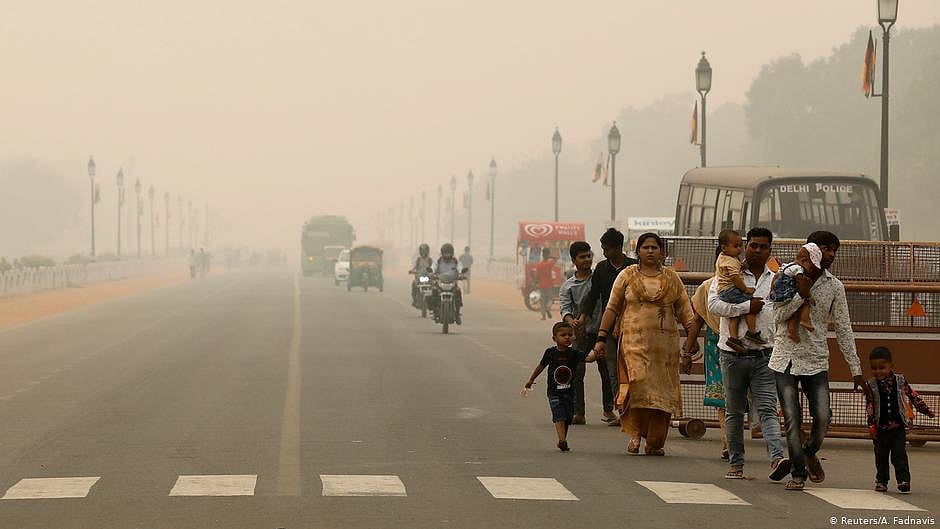Nation
PIL in Supreme Court over ‘nationwide public health emergency’ caused by air pollution
Fit India ambassador Luke Coutinho filed the PIL, saying air quality across urban and rural India remains “dangerously poor” despite existing laws and initiatives

A public interest litigation has been filed in the Supreme Court seeking urgent action to tackle what the petitioner calls a “nationwide public health emergency” caused by rising air pollution across India.
The petition, filed by wellness advocate and Fit India Movement ambassador Luke Christopher Coutinho, argues that despite existing legislation and multiple government initiatives, air quality in both urban and rural areas remains “dangerously poor” and continues to violate citizens’ fundamental right to life under Article 21 of the Constitution.
“The situation has reached a point where over 1.4 billion people are forced to inhale toxic air every single day,” the plea states, calling the crisis a direct threat to public health and environmental safety.
The PIL points out that annual averages of PM2.5 and PM10 in major Indian cities, including Delhi, Mumbai, Lucknow, Kolkata, Chennai and Patna, consistently exceed the limits prescribed under the National Ambient Air Quality Standards (NAAQS), issued by the Central Pollution Control Board under the Environment (Protection) Act, 1986.
It adds that recorded PM2.5 levels in several urban centres hover around 105 micrograms per cubic metre, approximately 20 times higher than the World Health Organization’s recommended safe limit of 5 micrograms per cubic metre
Published: undefined
Coutinho’s petition contends that this persistent failure to control air pollution has occurred despite the presence of key legislative frameworks such as the Air (Prevention and Control of Pollution) Act, the Environment (Protection) Act, and the National Clean Air Programme launched in 2019. It also notes that monitoring systems remain inadequate and enforcement of existing rules “weak, fragmented, and largely symbolic”.
“Air pollution is no longer just an environmental concern, it has become a complex industrial and policy challenge that demands coordinated, systemic intervention,” the plea argues.
The petitioner further emphasised that even citizens who actively practise wellness measures such as yoga, balanced nutrition and healthy living are unable to safeguard their health in the absence of clean air, undermining national health goals and exposing millions to heightened risks of respiratory, cardiovascular and neurological diseases.
The PIL urges the Supreme Court to issue time-bound directives aimed at reducing ambient air pollution, improving the country’s air-quality monitoring network, especially in rural areas, and ensuring strict enforcement of existing environmental laws.
With IANS Inputs
Published: undefined
Follow us on: Facebook, Twitter, Google News, Instagram
Join our official telegram channel (@nationalherald) and stay updated with the latest headlines
Published: undefined